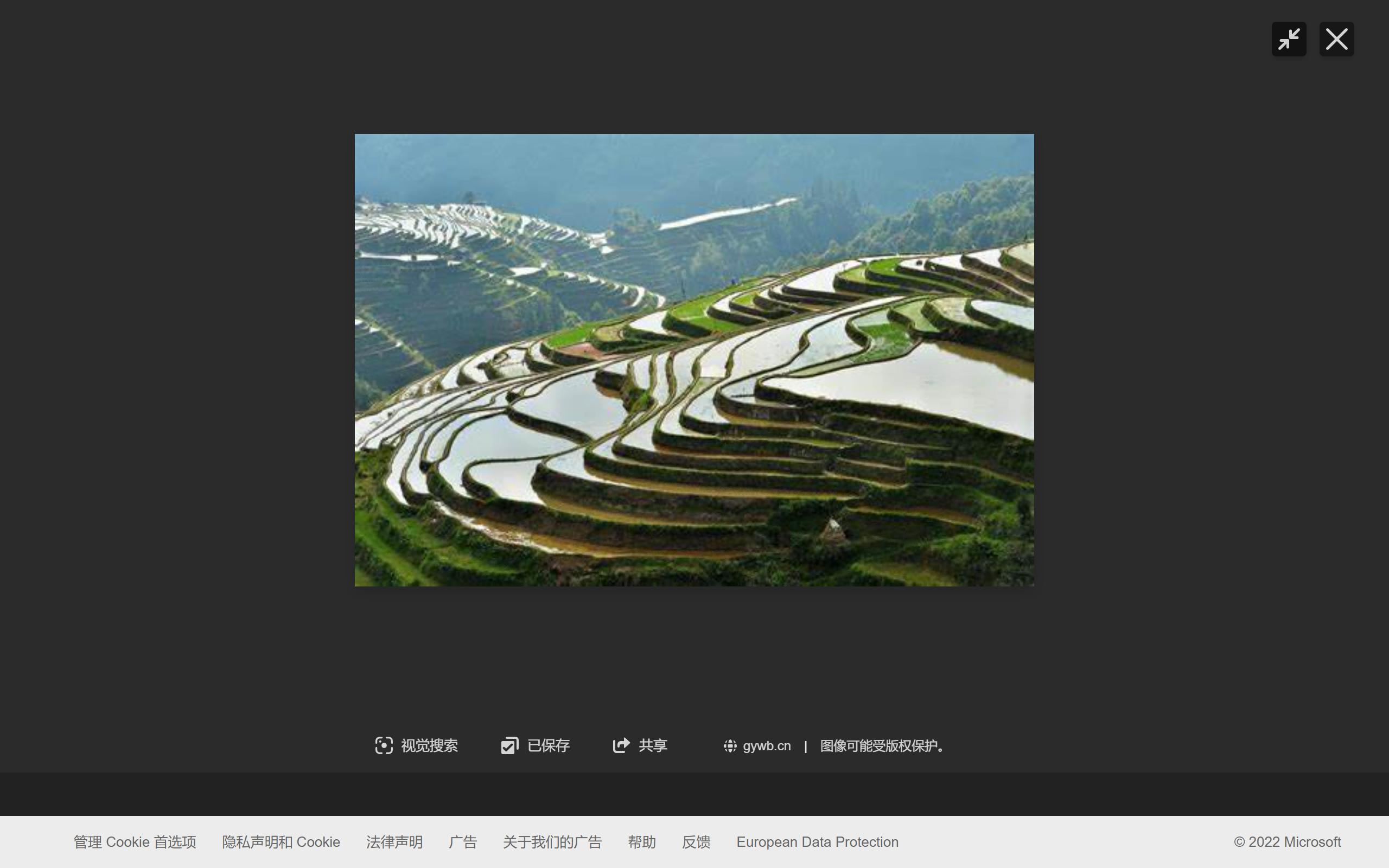I am translating a Chinese text about terraces into English. I am not sure whether terraces can be found in the UK or whether native speakers already know what terraces are. If I just say terraces, do you know what I am referring to? Do I need more explanation? The following is an image of terraces in China. Thank you.

-
You might say "terraced paddy fields" on the first mention. Who is your audience? Are you translating a technical article which will be read by experts in Chinese agriculture, or are you translating for general publication.– James KCommented Mar 13, 2022 at 7:04
-
I am translating for a photography society , the members of which are not familiar with Chinese agriculture. There are some descriptions of terraces in the following text. Given your advice, I am going to give a short explanation on the first mention. Thank all of you.– Emma-LiCommented Mar 13, 2022 at 10:55
3 Answers
We don't have such structures in the UK, but we know what they are. I would call it terracing to distinguish it from the more usual meanings of terrace here as a "stepped standing area", a "row of joined houses" or a "domestic outdoor area".
Lexico has
terracing
NOUNTerraced ground.
The Banaue creations, covering thousands of hectares, are the world's finest example of rice terracing.
That word is fine. Here is the definition:
2a: one of usually a series of horizontal ridges made in a hillside to increase cultivatable land, conserve moisture, or minimize erosion
And here is the English-language Wikipedia article about it: https://en.wikipedia.org/wiki/Terrace_(earthworks)
Not everyone is familiar with the term, so you can provide more explanation to be clearer. However, "terrace" is the usual word for that farming structure, and most people would probably be able to figure it out from the more common meaning:
1a: a relatively level paved or planted area adjoining a building
b: a colonnaded porch or promenade
c: a flat roof or open platform
By the way, I speak AmE, but I'm not aware of differences in any other dialects.
As others have noted, the word is certainly known in English. It is relatively rare, so it would certainly help to define it and explain. If you're writing a book-length discussion of the subject, taking a paragraph or two to explain in the first chapter wouldn't add unduly to the total length.
-
1It's not all that rare. Maybe among people of limited vocabulary. Commented Mar 13, 2022 at 7:43
-
@MichaelHarvey That's why I said "relatively rare" and not "extremely rare". :-)– JayCommented Mar 14, 2022 at 15:31

